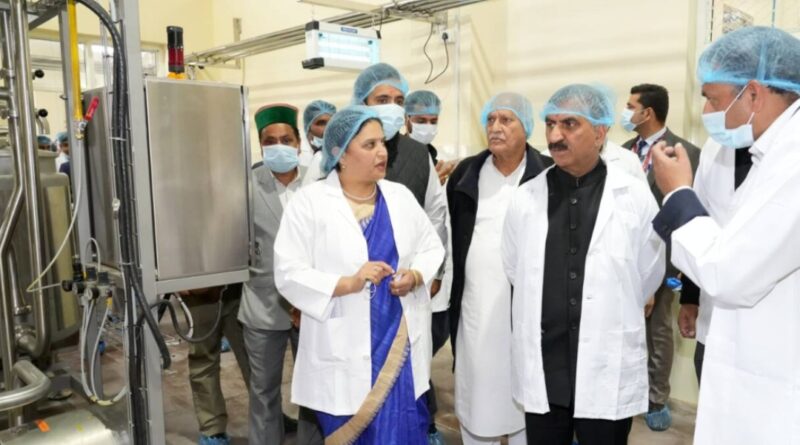Himachal Leads the Way: First State to Offer MSP on Milk, Empowering Farmers and Transforming Rural Livelihoods
- Over 2.32 lakh litres milk procured daily at MSP
- Rs. 6 crore annual support to Co-operatives
In a landmark move that’s reshaping India’s dairy sector, Himachal Pradesh has become the first state in the country to introduce a Minimum Support Price (MSP) for milk. This bold initiative reflects the state government’s deep commitment to supporting livestock farmers and building a stronger, more self-reliant rural economy.
Over the past two and a half years, the government has rolled out a series of impactful reforms aimed at empowering dairy farmers and strengthening cooperative institutions. Today, around 38,400 farmers supply cow milk daily, with the government procuring an average of 2.25 lakh litres at ₹51 per litre—based on quality standards. Additionally, 1,482 buffalo rearers contribute 7,800 litres daily, which is purchased at ₹61 per litre. These rates offer farmers a stable and assured income, marking a significant improvement over past procurement systems.
To ease the burden of transportation, especially in the state’s hilly and remote areas, the government is also providing a ₹2 per litre transport subsidy. This support is helping farmers access markets more easily and reducing costs for small and marginal producers.
One of the most ambitious initiatives under this transformation is the Him Ganga Yojana, which aims to revolutionize dairy farming at the grassroots. In its first phase, a dedicated committee has been visiting villages to establish milk producer cooperative societies. So far, 268 new cooperatives have been formed in Hamirpur and Kangra districts, with 110 already officially registered. Notably, 20 of the 46 new societies in Hamirpur are led by women—highlighting the government’s focus on empowering rural women.
In Kangra alone, 222 dairy cooperatives have been established, connecting over 5,100 farmers directly to organized milk production and marketing systems.
In another pioneering step, the government has launched a pilot project for goat milk procurement, offering ₹70 per litre. Currently, 100 litres are being collected daily from 15 goat rearers—opening new income avenues for livestock farmers.
To further support cooperative societies, the government has doubled the transport subsidy from ₹1.50 to ₹3 per litre. This benefit extends to all milk cooperatives registered under the Societies Registration Act, 1860, and the Himachal Pradesh Cooperative Societies Act, 1968. The estimated annual cost of this support is around ₹6 crore, a figure expected to grow as more societies join the program.
Chief Minister Thakur Sukhvinder Singh Sukhu emphasized that these reforms go beyond just numbers. “This is about creating a sustainable ecosystem that values farmers, ensures quality, and fosters inclusive growth,” he said. With a clear focus on improving farm incomes, empowering women, and strengthening cooperatives, the state is making significant strides toward rural transformation.
As Himachal continues its journey toward a self-reliant rural economy, its dairy sector stands as a shining example of what visionary governance and grassroots engagement can achieve—offering both economic dignity to farmers and a model for other states to follow.



